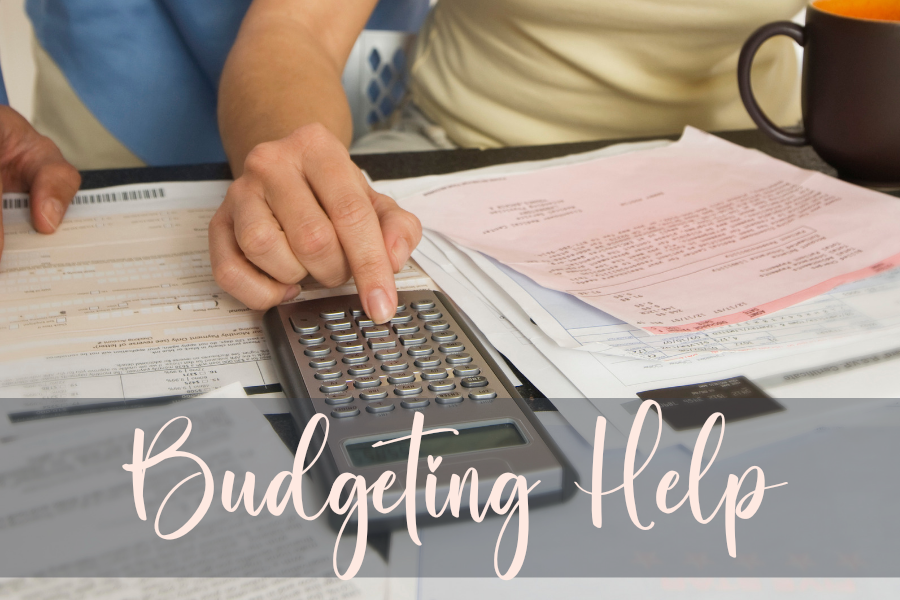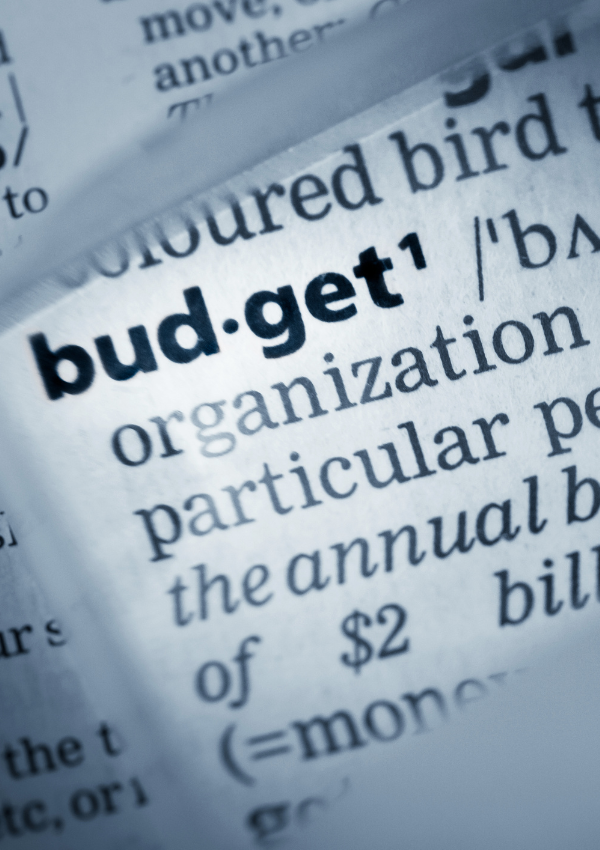This article may contain affiliate links. See our disclaimer for more information.

If you’re new to budgeting, you might feel like it’s an overwhelming task. Don’t worry; we’ve got you covered with our budgeting help for newbies – essential budgeting help tailored specifically for beginners. Learning how to budget is an important step towards financial freedom and independence. In this article, we’ll show you practical tips and strategies to help you learn to budget and take control of your finances. Let’s get started on your budgeting journey!
Understanding the Basics of Budgeting

Effective budgeting begins with a solid understanding of personal finance and money management. You’re on the right track coming here for budgeting help. Personal finance refers to the management of your money and financial decisions, while money management involves the day-to-day handling of your finances.
- Personal finance includes setting financial goals, creating a budget, and making investment decisions.
- Money management involves tracking your income and expenses, paying bills, managing debt, and building savings.
By mastering the basics of personal finance and money management, you can make informed decisions and establish a strong foundation for budgeting success. In the following sections, we’ll show you how to use this knowledge to create an effective budget plan and achieve your financial goals.
Creating a Budget Plan

A first step in budgeting help is to create a budget plan that works for you. Creating an effective budget plan is essential for financial stability and achieving your financial goals.
First, determine your income and expenses. List all sources of income, including your salary and any additional streams of revenue. Then, list all of your expenses, including fixed expenses. These may include:
- rent or mortgage payments
- transportation
- utilities
- dining out
- shopping.
Once you have a clear understanding of your cash flow, identify areas where you can cut back on expenses to reduce unnecessary spending. A great way to do this is by setting specific financial goals for yourself and ensuring your budget aligns with these goals.
Don’t forget to include money for savings and emergency funds. Saving money will help you prepare for any unexpected expenses and give you peace of mind, while an emergency fund can be a lifesaver during hard times.
Finally, track your expenses regularly and adjust your budget plan as necessary. By staying on top of your finances and making adjustments along the way, you’ll be able to achieve your financial goals and create a brighter financial future for yourself.
Follow these budgeting tips and begin your journey towards financial success through effective financial planning.
Utilizing Budgeting Tools and Software

One of the best budgeting help tips that I can give is to make budgeting easier with budgeting tools and software. Budgeting can be challenging, but with the help of various calculators, tools, software options, managing your finances can be made easier than ever before. By utilizing budgeting tools, you can streamline your budgeting process and stay on top of your finances with ease.
One of the most popular budgeting tools is a budget calculator. It is an effective way to start creating a budget and get a visual overview of your income and expenses. There are many budget calculators available online that are free to use, making it easy to get started without spending any money.
Budgeting tools like PocketGuard and RocketMoney track your transactions automatically and categorize your spending. These apps allow you to track your expenses and monitor your cash flow, which can be crucial for proper budgeting and money management.
Another excellent tool to consider is budgeting software. These programs allow you to track your expenses, manage your accounts, and analyze your spending patterns. Some of the most popular budgeting software options include Quicken, You Need a Budget (YNAB), and Personal Capital.
Whether you prefer to use a budget calculator, budgeting tools, or budgeting software, there are many options available to help you manage your finances effectively. Utilizing these tools can help you take control of your finances and achieve your financial goals sooner.
Tracking Expenses

To effectively manage your money, it’s important to track your expenses. For budgeting help this will assist you with identifying areas where you may be overspending and make informed decisions about where to cut back. One practical method is to keep all your receipts and record them in a spreadsheet or budgeting app. Alternatively, some banks offer expense tracking features that automatically categorize your purchases.
Another useful strategy is to set a monthly spending limit for different expense categories, such as groceries or entertainment. This will help you stay within your budget and adjust accordingly if you find yourself consistently overspending in one area. By regularly tracking your expenses, you can take control of your finances and make strides towards your money management goals.
Prioritizing Your Spending

When it comes to budgeting help, prioritizing your spending is critical to meeting your financial goals. One piece of advice we can give for budgeting help is to set yourself up with a budget system. One popular strategy is the 50/30/20 rule, where 50% of your income goes to essentials like rent and bills, 30% goes to discretionary spending like dining out and entertainment, and 20% goes towards savings and debt repayment. Another approach is the zero-based budget, where every dollar is assigned a specific purpose, including savings and debt repayment.
To align your expenses with your financial goals, consider using budgeting apps, like RocketMoney or YNAB, to track your spending and automate savings. Additionally, regularly reviewing your budget and adjusting as necessary can help you stay on track and make progress towards your long-term goals.
Ultimately, prioritize your spending to match your values and financial objectives. By being intentional about your expenses, you can make every dollar work for you, instead of losing track of where your money went.
Saving and Debt Repayment Goals

One of the most important aspects of budgeting is to establish saving and debt repayment goals. Knowing what to save and how much can help you effectively manage your personal finance and build a strong financial foundation for the future.
Another lesson we have in budgeting help is to set specific and measurable goals. This can help you stay on track and motivated throughout your saving journey. Start by identifying your short-term and long-term objectives.
Examples of long term savings goals:
- Create an emergency fund
- Pay off credit card debt
- Save for retirement
Examples of short term savings goals:
- Save for a car
- Save for Christmas
- Save for a new TV
Once you have established your financial goals, you can develop budgeting strategies to achieve them. This may include reducing expenses in certain areas, setting a monthly savings target, or increasing your income through side hustles or other opportunities.
Remember, the key to successful budgeting is to stay disciplined and committed to your goals which is much easier when you create realistic, actionable steps. With patience and perseverance, you can achieve financial freedom and secure a prosperous future.
Planning for Unexpected Expenses

Even with a well-constructed budget, unexpected expenses can occur, leaving you feeling financially unprepared and overwhelmed. However, with some smart financial planning and budgeting tips at your disposal, you can learn how to handle unforeseen costs without endangering your financial stability.
One way we recommend this in budgeting help is to prepare for unexpected expenses. A great way to do this is to stash money into an emergency fund every month. Establishing a broad safety cushion will assist you in covering unexpected expenditures such as medical bills, car repairs, or home renovations without tapping into your regular budget.
Another budgeting tip is to evaluate your lifestyle and eliminate expenses that aren’t necessary. Consider canceling unused memberships or subscriptions, reducing your dining out habits, and finding creative ways to entertain yourself at home or with low-cost activities.
Lastly, it is a good idea to maintain a line of credit in reserve to handle severe unexpected expenditures. Explore credit options such as personal loans or credit cards, but use them only as a last resort and make sure to repay the borrowed amount as quickly as possible to avoid incurring extra costs.
Long-Term Financial Planning

Budgeting is not just about managing your finances in the present moment but also involves planning for the future. Incorporating long-term financial planning into your budgeting strategy can help secure your financial future. Where do you see yourself financially in ten years? Twenty? Here are some budgeting strategies to consider:
- Define your long-term financial goals.
- Break down your goals into smaller, achievable milestones.
- Include your long-term goals in your budget plan.
- Revisit and adjust your budget as your financial situation changes.
By incorporating long-term financial planning into your budgeting strategy, you can enjoy peace of mind knowing that you are taking steps to secure your financial future.
Conclusion

Are you ready to take control of your finances with our budgeting help? With the tips provided in this article, beginners can take the first step to mastering budgeting and improve their financial well-being. Remember to prioritize financial goals, track expenses, and plan for unexpected costs.
Budgeting may seem daunting at first, but with practice and patience, it can become a valuable tool for achieving financial success. Start creating your budget plan today and experience the benefits of budgeting for beginners.
Thank you for reading and we hope this article has been helpful in your budgeting journey.
For more budgeting help check our article: Understanding the Importance of a Budget





